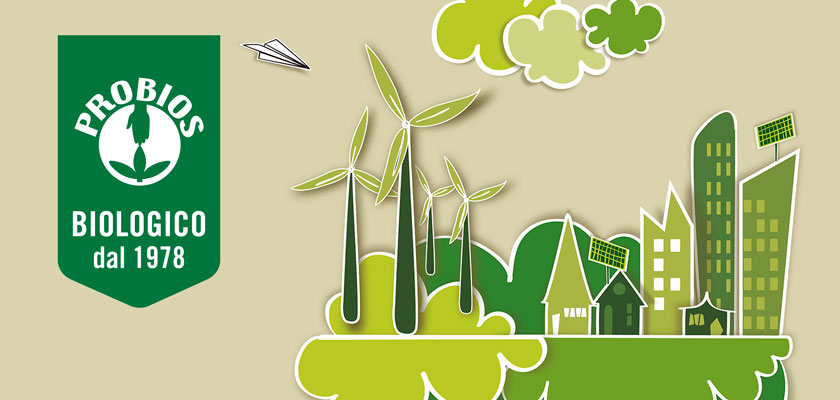
“Everyone has the power to make the world a better place”
(Sergio Bambaren)
Living sustainably: everyone talks about it, but in practice, what does it mean? Concern for the environment has grown tangibly following the alarming warnings of the scientific community. This has imposed not only a reflection on our lifestyle, but has activated in each of us the will to make our own contribution. Information with regard to this is growing, but not everyone knows how small steps can make the difference. We have chosen 5 daily contexts in which to try to put into practice the sustainability concepts in everyday life: these are simple precautions, not at all tiring and that allow us to save money too!
1 - Shopping
It’s precisely at the supermarket that our contribution to the cause begins, with the little daily choices that make the difference. Let's start by preferring organic and seasonal products, as well as for their nutritional value and their quality, due to the fact that they are not produced in greenhouses, whose use involves a high energy waste and sometimes even polluting emissions. It’s always better to choose local products, for which a long transport that pollutes and adds a cost to the product that is less fresh when it arrives is not necessary. This also applies to detergents and cosmetics: let's get information, read the labels, pay attention to how they are tested and where possible choose natural remedies. Plastic packs, such as detergents and many other foods, should be avoided. Better on tap and ecological cleaning. Stop to disposable items, such as plates, glasses and plastic cutlery.
2 – Conscious separate collection
Disposing of our waste correctly is a civic duty rather than a domestic choice. But it’s essential to know how to differentiate correctly. Let's start with the plastic that, due to its renown characteristics, should never be abandoned in the environment. Throw together bottles, pasta bags, bottles, trays, fruit and vegetable cassettes and nets, jars, transparent wrappers and toothbrushes (which also exist in recyclable wood). Waste with organic residues or with dangerous substances traces such as paints and glues have instead another destination. The containers must be clean, emptied and crushed. Bottles, glasses and jars must be placed in the appropriate bin but it’s good to know that light bulbs, neon lights, mirrors, crystal glasses and pyrex containers must be recycled differently. As for paper and cardboard, yes to newspapers, boxes, folded cartons, even notebooks and cardboard egg racks. Don’t throw in paper bins the greasy paper, the oven one and receipts. Food scraps, tea bags, coffee grounds and even paper napkins go into the wet container. All the rest is to be thrown into the undifferentiated bin, except for bulky waste that must be disposed of at ecological stations.
3 - Avoid taking the car
Walking, cycling, using public transport instead of cars is an integral part of a sustainable lifestyle and also allows us to do healthy physical activity and save money.
4 - Stop to standby, energy waste and purchase of low consumption appliances
Class A +, A ++, A +++ domestic appliances are preferred. Their sustainability is not limited to energy consumption, there are other crucial parameters that go from the production chain to the disposal. In addition, there are many sustainable behaviors that should be adopted to avoid energy waste: for example, managing the home temperature correctly using the thermostat, which on average should be set to an internal temperature that exceeds at least 6° the outdoor temperature. Leaving the dishwasher door open to allow the dishes to dry significantly saves energy compared to using the "dry" function. Here is another thing that seems absurd but can help save the planet: hanging out the laundry... let’s think of all the energy that is wasted with the use of dryers. It’s also desirable to switch off the electronic devices once you stop using them, instead of activating the "stand-by" mode.
5 - Take the initiative
These choices involve us firsthand: it’s our responsibility to decide to take actions in line with a sustainable lifestyle, as it is our responsibility to correct, where we can, someone else’s wrong behavior, up to the point of inducing companies to make right choices, consciously selecting those that work to preserve the environment.





